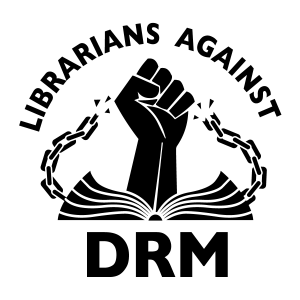
It’s an article of faith that DRM is bad and that when you buy something, you should own it in the digital realm just as we do in the physical. Ebooks are probably the most vibrant front in this war against Big Content and the End User. And I have to admit that I do prefer it this way, in an entitled sort of way. The idea that I’ve have to pay $9.99 every time I wanted to read my digital copy of Reamde is of course utterly absurd and offensive – I should be able to read it whenever I want, precisely because I paid so much for it. Ditto the MP3’s and videos I buy on Amazon or iTunes.
And yet there’s an assumption here that we do reuse our content. Obviously with music, we do – and that’s facilitated by the low price of the media. MP3 tracks don’t cost $9.99. But what about books and video? How often do we really rewatch or reread? The answer is, it depends. I don’t think I’m ever going to re-read 90% of the books I physically own, and that percentage will only increase for digital copies. For video, especially long series like Game of Thrones or Battlestar Galactica, the main experience is watching it without foreknowledge, and the value of rewatch is low (though there are exceptions, such as Farscape or Firefly). Movies have the lowest rewatch of all, apart from a handful of favorites (Star Wars, LOTR, Princess Bride etc).
It’s worth noting that the rewatch potential is inversely related to the price. But as you move up the chain from music to ebooks to video to movies the production cost of the content also goes up, which is why cost of ownership of that media also increases (obviously, not all of these forms of digital content are truly DRM-free such that we fully own them outright).
So, let’s factor in the rewatch potential, and ask ourselves, is ownership really useful to us? Are we getting our money’s worth? I don’t really think so. As a consumer, what if I had more choice, and paid accordingly?
The scheme I propose is just a starting point for a thought exercise of course, but imagine if (using ebooks as an example) we paid significantly less for “first read” and then paid a little more for each reread until some threshold after which we “unlocked” the content. So instead of paying $9.99, what if I paid only $1.99, which earns me one complete read through. The second read through would cost $1.07, and subsequent read throughs would be $.99 each, until I’ve read the book 9 times at which point the book unlocks to unlimited further reading – and I’ve paid $9.99 total.
The advantage of this is that the barrier to purchasing a book is much lower, such that publishers will see more sales. Not of the individual title, perhaps, but of more titles overall. It wouldn’t be hard to do some numerical estimates based on reasonable assumptions: suppose that number of people purchasing a book scales with price according to a Zipf distribution for example.
The bottom line is that maybe we as consumers should stop focusing on theoretical rights and instead focus on actual expenses and cost-benefit, the same way we do for toilet paper and cereal, when it comes to digital goods. If we think of them as consumables rather than goods, it would be more in line with our actual usage.
2 responses to “renting bytes: the case for digital non-ownership”
Anything that reduces the up-front cost of a book will meet with stiff resistance from all but a few enlightened (Baen) publishers. They spend a lot of time talking about their production cost, and very little time on the value to the customer, which, as you point out, is quite low for a typical read-once book. They seem to be fixated on recovering the production cost quickly, based on their historical dead-tree sales patterns of X copies at $Y in Z weeks before it gets shoved aside for the next set of releases.
And it’s really hard for them to convince me that their production costs on the Kindle edition of a 35-year-old SF novel are somehow the same as a brand-new one. That ends up looking more like “if some books cost less than X, people won’t be willing to pay 2X for our new releases”.
-j
I think the concept of Non-Ownership would be fine with people, given the right experience. The problem is that DRM, as currently implemented, is so horrible and unintuitive that it causes that sort of kneejerk response you’re talking about.
But, for example, I like Netflix’s watch instantly service. Pay one fee up front, watch as much as you want, but you don’t actually own any of the things you watch. I believe Netflix has some sort of DRM involved, but it’s relatively seamless to the customer and more importantly, it’s an intuitive model. The biggest issue with Netflix is that the selection isn’t particularly great. In order for people to be really comfortable with the service (and to pay a premium for it), it has to have a comprehensive collection of content. That is usually the sticking point and what causes problems with that sort of solution. No one wants to pay for a service that only has Warner Brothers movies, because no one cares who made what movie. Same for books and music.
That sort of subscription service makes a lot of sense and it’s intuitive, easy to understand model that is appealing to people. On the other hand, it might not be so great for new releases (at least from the IP owners standpoint), which presents a bit more of an issue for publishers, as they don’t have other streams of revenue like other mediums (i.e. movie theaters, concerts, etc…)